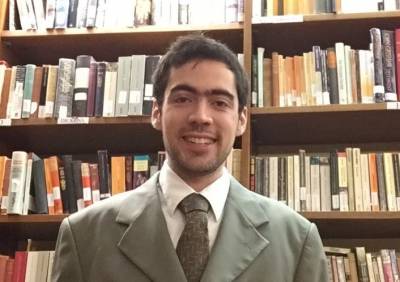Pedro received his BEng in Chemical Engineering with first-class honours in 2015 from the Federal University of Minas Gerais (UFMG). He was part of the Scientific Initiation Program in Mathematics at the same university (2011-2014). He was a fellow of the Science Without Borders program at McMaster University, Canada (2012-2013). In 2015 Pedro started his PhD studies at University College London.
Research project
Title: Development, implementation and application of a language for modeling uncertainty in design and process optimisation
Durbach and Stewart (2012) review the use of uncertainty in multi-criteria decision making. They distinguish between external and internal uncertainties. The former are due to actions or events in the future whereas the latter have to do with the decision makers own behaviour. We are interested in the former which includes, in the context of this project, the availability of energy, the price of energy, the behaviour of energy providers, etc. They also categorise the representation of uncertainty: probabilities, decision weights, explicit risk measures, fuzzy numbers and scenarios. From a modelling perspective, probabilities and fuzzy numbers are suitable; the other representations bring elements of decision making into the representation and hence presuppose solutions to a design problem. We would rather delegate the responsibility, at least initially, of decision making to the Jacaranda optimisation framework. In this project, we wish to develop a modelling language that will enable us to represent uncertainties and manipulate variables with uncertain values.
We will consider the presence of two types of uncertainties: continuum and discrete. The former will include quantities such as the price of electricity or the grade of heat available. The latter will be used to describe the presence or absence of something, such as energy provided intermittent sources (wind, solar, tidal). The discrete uncertainties will be functions of time and will be modeled by binary variables but the switch points, where a source becomes available or not, will be modeled by an uncertain continuum variable. Therefore, the core of this task will be to describe these continuum uncertainties in a modelling language and define mathematical operations on these quantities. The methodology developed will be applied to energy systems including the use of intermittent energy supplies and in the presence of market uncertainties.
Education
BSc (Eng) in Chemical Engineering, Federal University of Minas Gerais, Brazil 2015
 Close
Close


